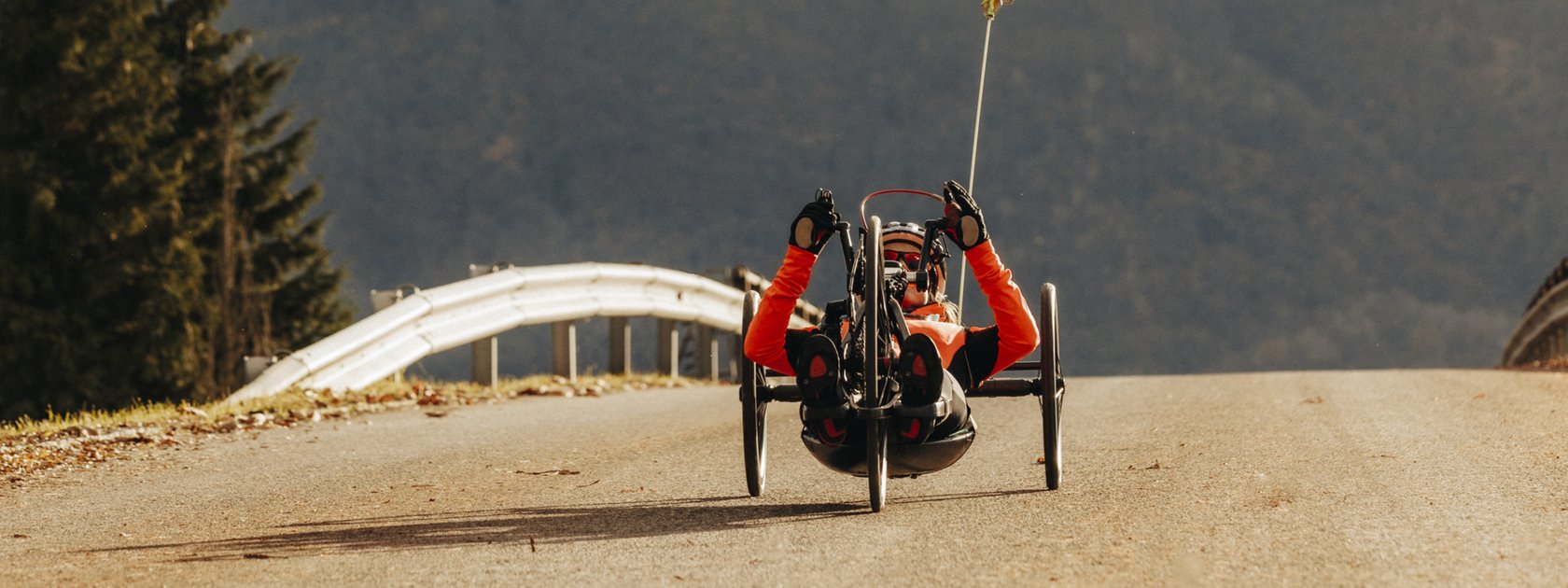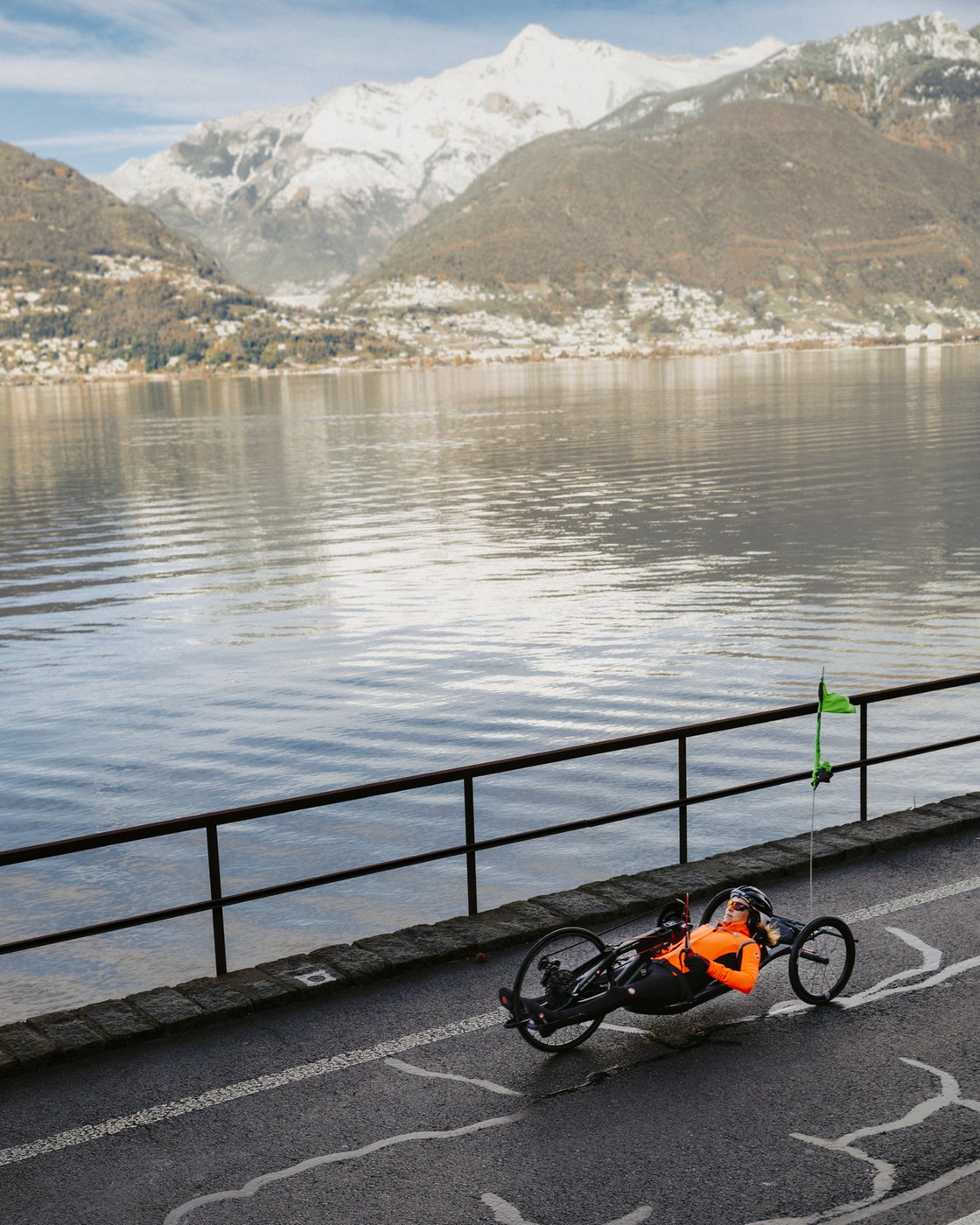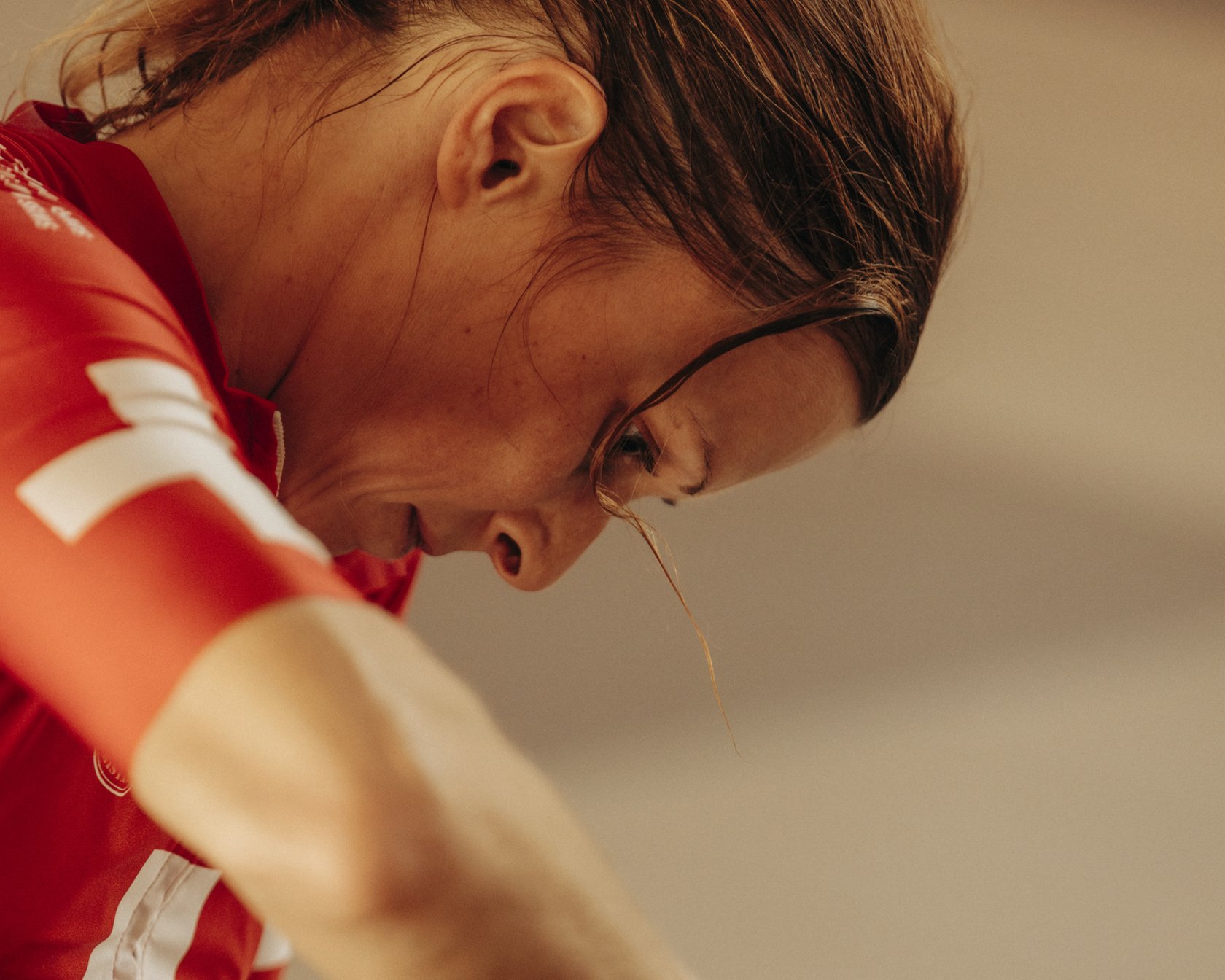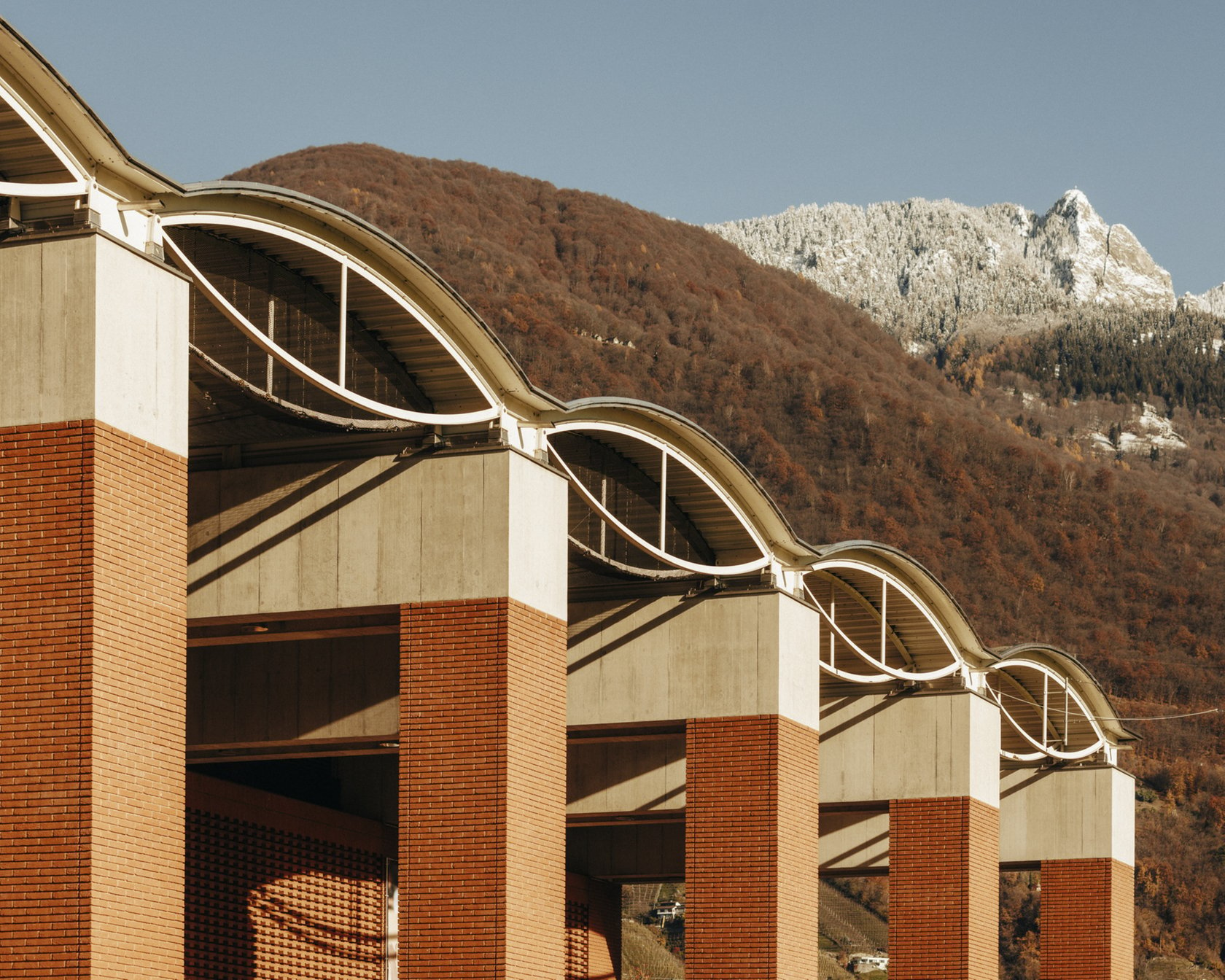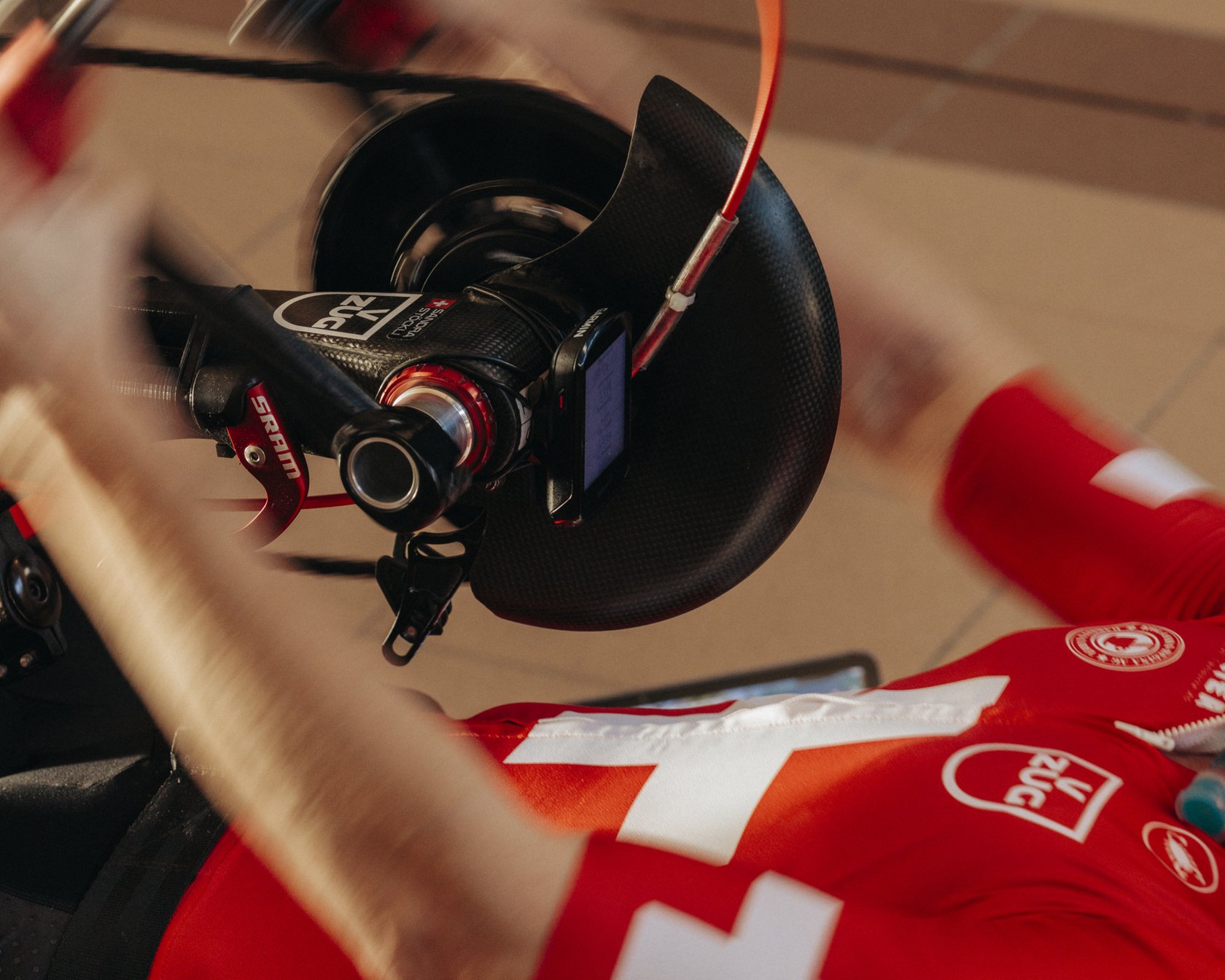Sandra Stöckli, you ride your hand bike up to 90 kilometres per hour. Are you still aware of your training environment at all?
A hand bike is just a racing bicycle for us wheelchair users. I can ride all the routes that a racing cyclist rides. I am not tied to a sports facility, for example a 400-metre track. I can go out into nature, I can go out into the world! I have already ridden across Oman. And training – over the Albula Pass, for example, or 100 kilometres in the freezing cold in Ticino – can be extremely rigorous, but in the end, I've seen many beautiful things. Gentians on the side of the road, or a whistling marmot. Then it was also just a beautiful bike ride.
You are not tied to a sports venue, but to a sports device, the hand bike…
That's right – and it's a high-tech device. Or rather two: I have two hand bikes that are both top of the range. They are 100% identical. If I were blindfolded and put on a bike, I wouldn’t be able to tell whether I was on the blue one or the red one. This is because I have to adapt the material depending on the track: if I'm at a World Cup race in Belgium, where it's flat but windy, I ride different material than if I'm doing a mountain time trial in Germany. In Belgium, where we race right by the sea, I can't use wheels with high rims – or I'll be pushed off the road in a crosswind. A race at the 2021 Paralympics in Tokyo took place at the Fuji Speedway. When it rains, the surface of the racetrack becomes very slippery. This meant that two bikes were made for me, a rain bike and a sun bike. In the meantime, however, we have been working on developing the bikes further. I am very dependent on my team, on my experts. I am neither an aerodynamics specialist nor a bicycle mechanic. I am simply a sportswoman. I have ideas that I would like to see implemented, and then the experts are called on to test them. That's where worlds collide. What good is a position on the bike that is aerodynamically ideal if it causes me back pain?
Where does a sponsor like V-ZUG come into the picture?
Financial support is important. For the Paralympics in Paris in 2024 and for the home World Championships in Zurich in 2024, there are many ideas on how we could optimise the materials. If they succeed, it will save several watts of my power – which would make me faster. But implementation also comes at a cost. That's where I have to rely on sponsors. And in general, the financial outlay is immense. The fact that I can do the sport the way I currently do it is only possible thanks to my long-term sponsors like V-ZUG. If you, as a hand biker, have to work part time on the side, going to a Paralympics is an illusion. You wouldn't be able to compete.
